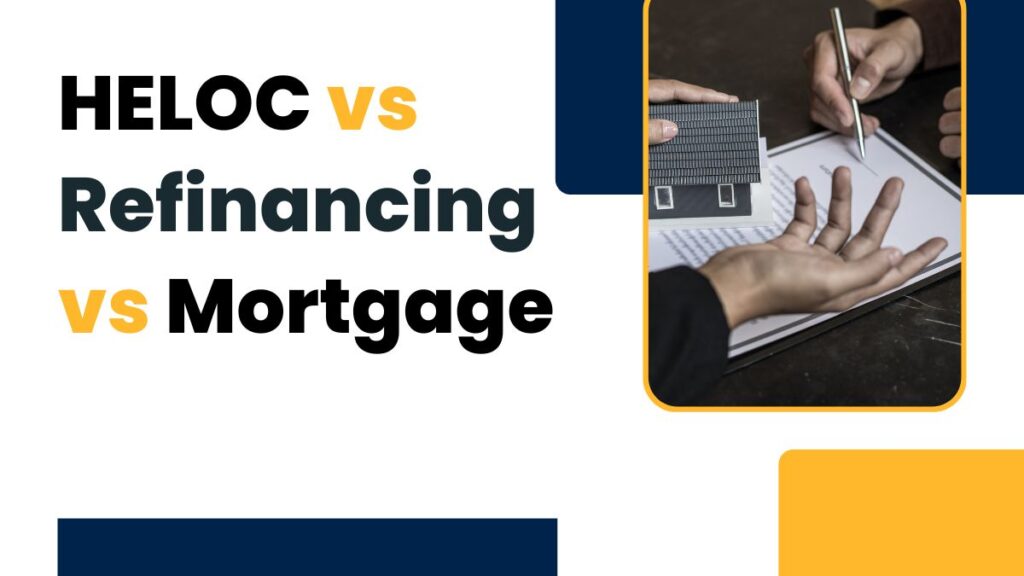Wondering how does a reverse mortgage work when you die? Learn how the loan is repaid, options for heirs, and how AJP Mortgage can guide you through the process with ease.
Ever wondered what happens to a reverse mortgage when the homeowner passes away? A reverse mortgage helps people 62 and older turn part of their home’s value into cash without monthly payments. The loan is paid back when the homeowner sells the house, moves, or passes away.
But what happens when they’re gone? How is the loan handled? Right now, nearly 1 million reverse mortgages are in place in the U.S.
In this post, we’ll explain what happens to a reverse mortgage when the homeowner dies, how the loan is repaid, and what family members should know. Let’s break it down!
Understanding How the Loan Works
A reverse mortgage lets homeowners convert their home’s equity into a loan, but instead of paying back monthly payments, the loan balance grows over time. When the homeowner passes away, the loan is due.
The good news is, reverse mortgages are “non-recourse” loans, which means the lender can only take the value of the home to pay off the loan. Heirs don’t have to pay more than what the home is worth, even if the loan balance is higher.
What Heirs Can Do?
When a loved one passes away, heirs have a few options for handling the reverse mortgage:
Sell the Home
Selling the home is the most common choice. The sale proceeds pay off the reverse mortgage, and if there’s money left over, the heirs keep it.
Keep the Home
Heirs may want to keep the home. They can:
Other Considerations
It’s important to consider things like taxes or estate planning. For example, selling the home might bring up capital gains taxes. Talking to a financial advisor can help make the right choice.
Good communication between the homeowner and heirs is key. Knowing what to expect can make the process smoother and avoid surprises later.
How Does A Reverse Mortgage Work When You Die?
Curious about what happens to a reverse mortgage when you pass away? Discover how a reverse mortgage Canada works after death and what options your heirs have to protect their future.
The Loan Is Repaid
The loan must be repaid by the homeowner’s heirs. The most common way to repay the loan is by selling the home. The proceeds from the sale go toward paying off the reverse mortgage.
Non-Recourse Loan
Since reverse mortgages are “non-recourse” loans, the lender can only take the value of the home to repay the loan. If the loan balance is higher than the home’s value, heirs are not responsible for the difference.
Options for Heirs
Sell the Home: Heirs can sell the home to pay off the loan. Any money left after paying the loan goes to the heirs.
Keep the Home: If heirs want to keep the home, they can:
If neither is possible, the home may need to be sold to repay the loan.
Tax and Estate Planning
It’s important to think about potential taxes or other legal considerations. Consulting with a financial advisor can help make the right decision.
When the homeowner passes away, the reverse mortgage is paid off by selling the home or through other options, and the heirs are not liable for more than the home’s value.
Protecting Heirs’ Interests
When a loved one with a reverse mortgage passes away, it’s important to make sure the heirs are protected. Here’s how to make the process easier for everyone:
Know the Loan Balance
Heirs should know how much is owed on the reverse mortgage. Understanding the loan balance helps avoid surprises when the home is sold or decisions are made about the property.
Talk Early
It’s helpful to talk to the homeowner about the reverse mortgage before they pass away. This makes the process smoother for everyone and helps heirs know what to expect.
Explore Options Early
If heirs want to keep the home, they should look into their options early. Refinancing or getting a new mortgage could be a good choice to help them keep the house.
Plan Ahead
Estate planning is important. Talking to a financial advisor can help heirs make better decisions about taxes, fees, and the next steps after a loved one passes away.
By understanding the reverse mortgage, talking early, and planning ahead, heirs can protect their interests and make the process easier. At AJP Mortgage, we’re here to guide you through every step and answer any questions along the way.
How AJP Mortgage Can Help?
AJP Mortgage is dedicated to making the reverse mortgage process simple and clear while helping you protect your family’s future. Here’s how we can assist you:
Simple Guidance
We break down the reverse mortgage process in straightforward terms, ensuring that you and your family fully understand what to expect every step of the way.
Personalized Solutions
We offer tailored options to fit your unique needs, whether your goal is to stay in your home for as long as possible or find financial relief during retirement.
Expert Advice
Our experienced team provides advice on what happens after the homeowner passes away, helping guide heirs through the process and ensuring everything runs smoothly.
Estate Planning Help
We work with you on estate planning to protect your heirs’ interests, avoid surprises, and ensure a smooth transition for your family when the time comes.
Real-World Case Studies
Real-World Case Studies: See how AJP Mortgage’s simplified mortgage solutions have helped homeowners navigate reverse mortgages and find the best path for their financial future.
Case Study 1: John’s Family
Situation
John, 72, took out a reverse mortgage to help with his retirement. After he passed away, his children inherited the loan.
Action
They decided to sell the home, which was valued at $250,000. The reverse mortgage balance was $180,000.
Outcome
After paying off the reverse mortgage, they were able to keep the remaining $70,000 from the sale of the home.
Case Study 2: Susan’s Daughter
Situation
Susan, 68, used a reverse mortgage to cover healthcare costs. After her passing, her daughter decided to keep the home.
Action
She refinanced the reverse mortgage with a traditional mortgage to pay off the loan and retain ownership of the house.
Outcome
By refinancing, she was able to stay in the home and manage the loan without losing the property.
At AJP Mortgage, we’re here to simplify the reverse mortgage process and provide expert support to help protect your family’s future. Whether you’re navigating the loan or helping your heirs, we ensure everything is clear and manageable for everyone involved.
Conclusion
When a homeowner with a reverse mortgage passes away, the loan needs to be repaid. But there are options, like selling the home or refinancing. Planning ahead makes things easier.
Key Takeaways
Unsure about reverse mortgages? Talk to a our experts today to help you plan for the future.


